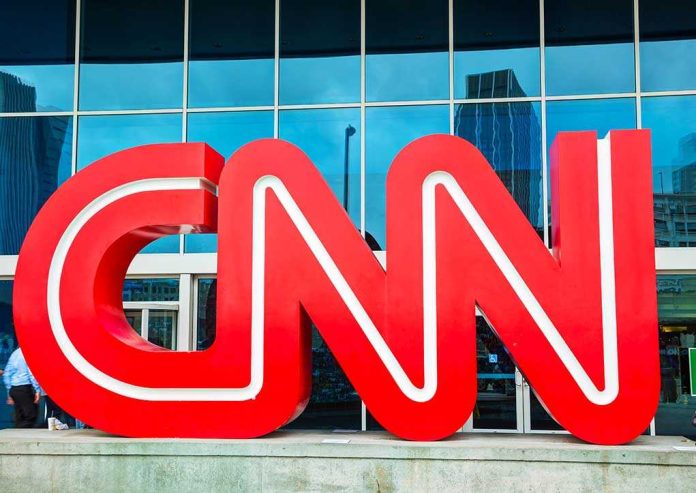
Another blow to accountability: a federal court just sided with CNN, tossing Alan Dershowitz’s defamation case and shielding media giants from consequences for distorting the truth about conservatives.
Story Highlights
- The Eleventh Circuit Court dismissed Dershowitz’s defamation lawsuit against CNN, finding no evidence of “actual malice.”
- This ruling strengthens legal protections for media outlets, even when coverage misrepresents conservative viewpoints.
- The case reaffirms the high bar for public figures—including Trump defenders—to hold the press accountable for harmful coverage.
- Many conservatives see this as another example of mainstream media bias going unchecked by the justice system.
Court Dismisses Dershowitz’s Defamation Suit, Shields CNN
A federal appellate court has thrown out Alan Dershowitz’s high-profile defamation lawsuit against CNN, ruling the network’s coverage of his Trump impeachment defense was protected by the First Amendment. Dershowitz, a renowned legal scholar and a key figure in President Trump’s first impeachment trial, argued that CNN deliberately misrepresented his statements to portray him in a false and damaging light. Despite his claims, both the district and appellate courts found that Dershowitz could not prove CNN acted with “actual malice”—the legal threshold for public figures seeking damages over defamatory reporting. The courts determined that CNN’s commentators sincerely believed their interpretations, regardless of how slanted or unfair they appeared to viewers seeking honest coverage.
For conservatives, this outcome is frustrating but not surprising. The “actual malice” standard stems from a 1964 Supreme Court ruling meant to protect robust debate, but it has become a near-insurmountable barrier for public figures—especially those defending constitutional principles or challenging left-leaning narratives. In Dershowitz’s case, the courts repeatedly emphasized that even harsh or arguably misleading editorializing is not actionable unless it is knowingly or recklessly false. This standard gives media outlets wide latitude to interpret, critique, or even distort statements from conservative voices, as long as their commentators claim sincere belief in their reporting.
How “Actual Malice” Lets Media Off the Hook
The roots of this decision lie in the “actual malice” test established by New York Times v. Sullivan, a precedent that has shielded the press from many high-profile defamation claims. Public figures like Dershowitz—and by extension, anyone defending conservative causes—must prove not just that a statement was false and damaging, but that it was made with knowledge of its falsehood or reckless disregard for the truth. In practice, this means major networks can editorialize or selectively quote, so long as they avoid clear intentional deception. In Dershowitz’s lawsuit, internal CNN communications expressing strong opinions did not meet the legal threshold, as the court viewed ideological bias or groupthink as insufficient evidence of knowing falsity. This legal climate emboldens media outlets to attack and misrepresent conservative positions with little fear of legal reprisal, raising serious concerns for those who value honest reporting and constitutional protections.
The appellate ruling also reflects the broader pattern seen in other recent defamation cases involving public figures. Legal experts observing the Dershowitz case point out that courts are increasingly hesitant to hold media organizations accountable for even egregious mischaracterizations, citing the supposed need to protect “robust public debate.” Yet for many Americans, particularly those who have watched the mainstream press target President Trump and his allies with relentless negativity, this does not feel like fair debate but rather institutionalized bias. When media outlets can twist words and smear reputations with near-total immunity, trust in both journalism and the courts erodes—fueling the persistent frustration among conservative voters who feel their voices are neither heard nor protected.
Media Bias and the Challenge for Conservative Voices
The Dershowitz decision is a stark reminder that the system is stacked against those who challenge media orthodoxy or defend traditional American values. Dershowitz, though not always aligned with the right, became a target for his role in defending President Trump—exposing how quickly the media will distort arguments to fit their anti-Trump agenda. The court’s refusal to hold CNN accountable sends a chilling message: prominent conservatives, constitutional scholars, and everyday Americans who speak out risk reputational harm with little chance for legal remedy. This outcome underscores the urgent need to reform defamation law and restore accountability to a press that too often acts as an unaccountable political actor, rather than an impartial informer.
For Trump supporters and constitutional conservatives, this case epitomizes the uphill battle against a media landscape that routinely undermines their rights, values, and reputations. Until legal standards are rebalanced to protect honest debate and guard against calculated misrepresentation, media conglomerates will continue to operate above reproach, shaping public perception with impunity and deepening the divide between the press and the people it is supposed to serve.
Sources:
Dershowitz v. Cable News Network, Inc. (Eleventh Circuit, 2025)
The Appellate Court Rejected Alan Dershowitz’s Lawsuit Against CNN
11th Circuit Tosses Alan Dershowitz Defamation Claims Against CNN | Courthouse News Service




